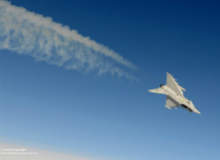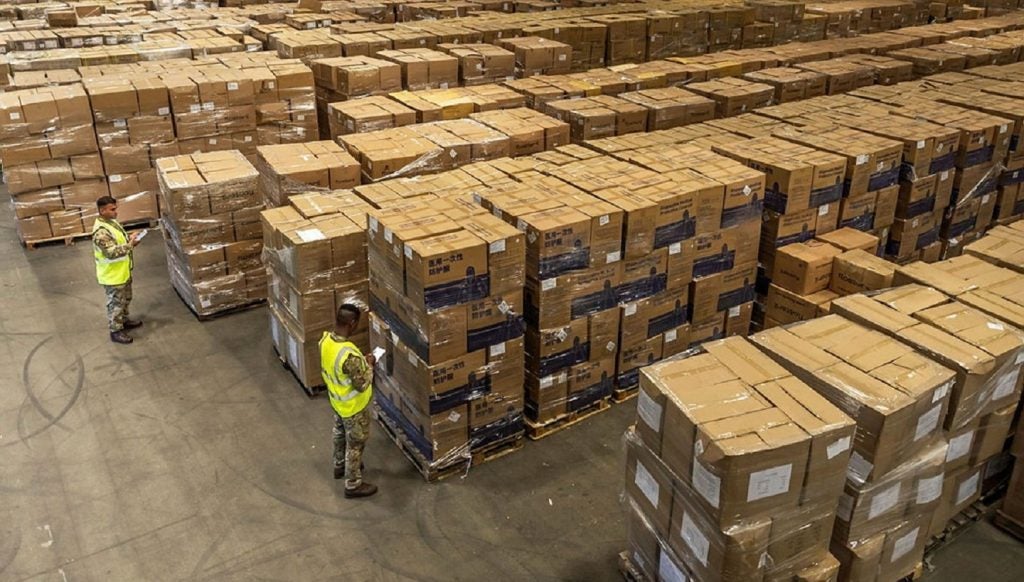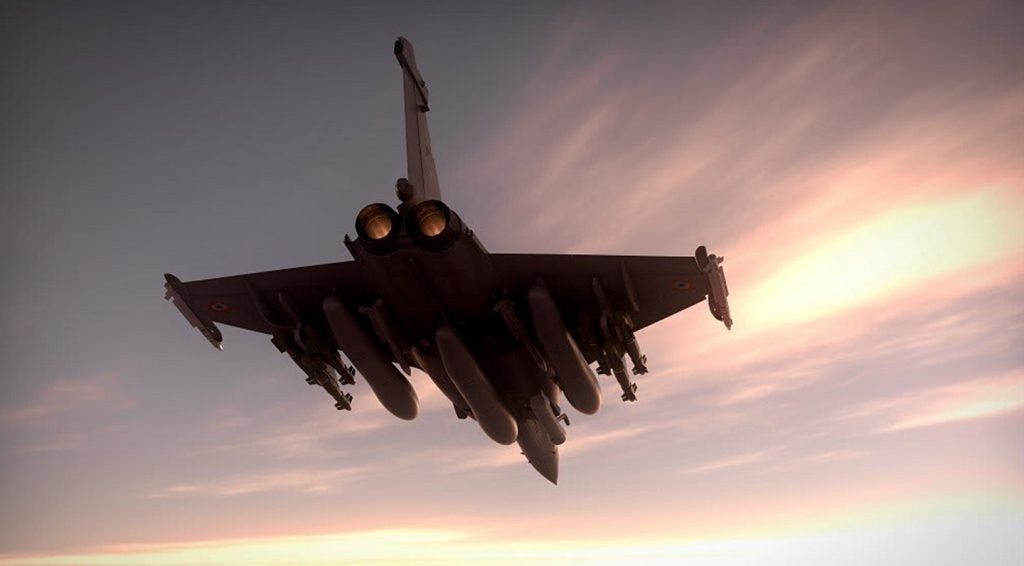

Continuous delays and unforeseen budget expenditures are hampering the progression of the Bundeswehr’s long-term weapons development programmes. Last month, managers of the country’s fifteen major defence projects met with German Defence Minister Ursula von der Leyen at the Third Armaments Review Board to present project status and forecast assessments to management at the Ministry of Defence. The reports were dark.
The fifteen projects highlighted in the review run a total cost of €58bn (£41.8bn), or about 70% of all current German defence procurement projects, with an average maturity of approximately thirteen years. Each project’s completion, on average, has gone beyond schedule, averaging four years longer than originally planned. Moreover, the average budget of the fifteen projects has been exceeded by 29%; equalling a total of €12.9bn (£9.3bn). According to reports, the main reason for the price hikes are numerous delays in project timelines and the corresponding budget readjustments.
At-risk projects: Tiger, Puma, Eurofighter and A400M
The list of at-risk projects include Tiger helicopters, the Puma combat vehicle, Eurofighter combat aircraft and related components, the NH90 multi-role helicopter, and the A400M transport aircraft. Fallout from their delay or incapacitation causes a weakening of force-posture for the German armed forces and partner nations who are also dependent on such supply. As conflicts continue to emerge worldwide, enhanced capabilities are necessary. Yet the stalling of these programmes will anchor German forces on older platforms, which they earlier sought to phase out.
Despite harsh criticism from the opposition, Von der Leyen’s platform seeks to restructure and rehabilitate these ailing programmes. According to defence industry experts, corrective measures have already been implemented. However, such measures take time to come to full effect, especially when assessed in the wider context of self-inflicted trade restrictions enacted by the German Ministry of Economics.
Export restrictions on trade with the Middle East
The Ministry of Economics, headed by Economy Minister Sigmar Gabriel, is the government agency responsible for reviewing export license applications of defence and dual-use products. Since assuming office in 2013 Gabriel has initiated a policy to limit Germany’s role in the global arms trade by reducing arms export permits, especially for hardware destined to governments in the Middle East with allegedly poor human rights records. Yet despite the ethical goodwill, the policy is more than a bad omen for German defence manufacturers and its effects have already cut the industry deep.
How well do you really know your competitors?
Access the most comprehensive Company Profiles on the market, powered by GlobalData. Save hours of research. Gain competitive edge.

Thank you!
Your download email will arrive shortly
Not ready to buy yet? Download a free sample
We are confident about the unique quality of our Company Profiles. However, we want you to make the most beneficial decision for your business, so we offer a free sample that you can download by submitting the below form
By GlobalDataWith the opening salvoes already fired, the Napoleonic maxim that “no plan survives the first shot” is proving as true as ever.
The Ministry of Economics released a statement indicating that as a result of the restrictive export policy, government-approved foreign arms sales dropped by 32% last year. More concretely, the ministry elaborated that 2014 weapons export permissions destined to Middle Eastern countries fell to €660m (£47.5m), down from almost €2.1bn (£1.5bn) the previous year; the lowest since 2007.
The Wall Street Journal reported Gabriel as saying, “it is rather pleasing that German arms exports declined notably last year, particularly to the Arabic region.” But his policies surely have not brought smiles, or full pockets, to the German industry.
Political pressure restricts market opportunities
With conflicts erupting in faraway lands as well as within the greater European neighbourhood, the worldwide market demand for arms is booming and German companies cannot afford to pass up sales opportunities. Foreign sales keep the German industry afloat as domestic and NATO orders have begun to sink in recent years. German manufacturers seek continued contracts with loyal long-term clients such as Saudi Arabia and potential new clients such as Ukraine, which have growing appetites for new equipment in their respective regional struggles.
But despite the seamless existence of both ready supply and eager demand, political pressure restricts market freedoms. Exemplifying this is the Ministry of Economics’ move to reduce sales to Saudi Arabia despite the country being at the forefront of combating rebel groups in Yemen and preparing to step up ISIS offensives. Closer to home, Chancellor Angela Merkel continues to reaffirm German opposition to arming the Ukrainian Government in its struggle against separatist forces in the East. Pre-sanctions contracts of combat simulation equipment to Russia have also been cancelled top-down by the Ministry of Economics.
Notwithstanding this precedent, Germany has radiated mixed signals by supplying Kurdish Peshmerga forces with arms, in exceptional circumstances due to what German Foreign Minister Frank-Walter Steinmeier indicated as an “existential” threat to their existence.
A question of policy or law?
With such polar policy positions for each respective partner country, what exactly are the new restrictions which prevent the German defence majors from exporting?
According to Merkel, “Germany does not ship weapons to conflict zones,” which indicates that, until recently, the decision has been political. But it may have legal undertones.
Philipp Hermes, managing partner of Hamburg-based law-firm BHM Penlaw says “The actual legal framework for exporting military and dual-use goods has remained unchanged for years and a change in law is not expected to come. While the law does not ban any weapons exports outright, it stipulates the requirement of Ministry of Economics approval for each export.”
“BAFA, the Federal Office for Economic Affairs and Export Control, is responsible for ensuring the implementation of such regulations in line with Germany’s political priorities.
“The political Germany must balance its geopolitical responsibility, the economic impact of export restrictions on German industries, and the uncertain vox populi. This is even more crucial when examined together with the upcoming 2017 election campaigns. On the one hand, public opinion does not support arms supply to states with low democratic standards, but on other hand the public cannot ignore the geopolitical threat in unstable regions such as Syria and Iraq. The general policy not to ship weapons to conflict zones is likely to change in the near future and to be watered down,” Hermes explains.
Industry survival through consolidation
Until that happens, however, some German firms are finding a workaround by moving production sites to overseas subsidiaries or merging with foreign companies to sidestep German policy restrictions.
Last year, Rheinmetall, Germany’s highest yielding defence manufacturer, decided to step up foreign production capabilities by bolstering its 2008 joint venture in conjunction with South African state-owned defence company Denel by launching a new munitions factory near Cape Town. Such offshoring may allow the subsidiary to avoid trade restrictions enacted by the German Ministry of Economics, which could damage Rheinmetall proper’s capacity to fill active contracts and please future customers.
Russia’s withdrawal from the Treaty on Conventional Armed Forces in Europe (CFE) may sound the death knell for a Cold-War era pact.
More recently, German tank manufacturer Krauss-Maffei Wegmann (KMW), known for the renowned Leopard 2 tank, released preliminary information on a possible merger with Nexter Systems of France. This comes as an order for KMW’s Leopard 2’s destined for Saudi Arabia was restricted by the Ministry of Economics.
Gabriel and the ministry are reported to be dissatisfied with this cross-border partnership approach, preferring it if KMW were to consolidate with another German superstar such as Rheinmetall, rather than seek support from elsewhere in Europe or beyond. They hope to see leading defence manufacturers diversify into other markets and non-weapon support sectors such as software and transportation; even going so far as to say that Germany ranking third in global arms exports, behind the US and Russia, is “disgraceful,” and suggest that the industry take a fundamental shift to limit arms production.
With pervasive challenges caused by both domestic production budgets, as well as export restrictions on foreign orders, the German defence industry will need to take drastic action to maintain global market position and revive export potential. So drastic perhaps, that partnering with foreign multinational firms or outsourcing overseas will make German firms shed their national identity at the expense of domestic production, unless they can be reintegrated by an open-for-business Ministry of Economics, supportive of resuming appropriate foreign military sales.






